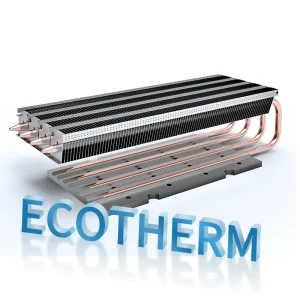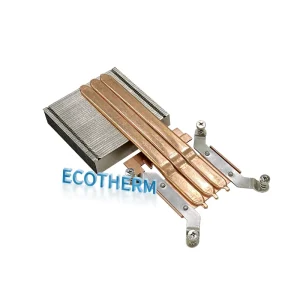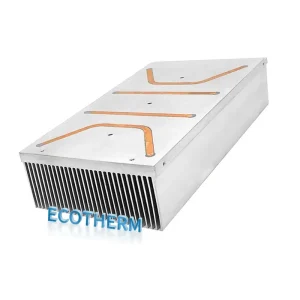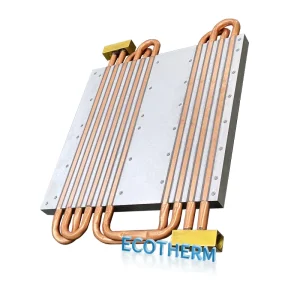Ecotherm's Skived Heat Sink
Keeping Cool for Efficient Performance Inverters are the workhorses behind converting direct current (DC) into alternating current (AC), playing a pivotal role in various applications. However, beneath their unassuming exteriors lies a crucial component that ensures their smooth operation – the heat sink. In this article, we will delve into the central role played by heat sinks in inverters and how they contribute to the efficient conversion of electrical power.
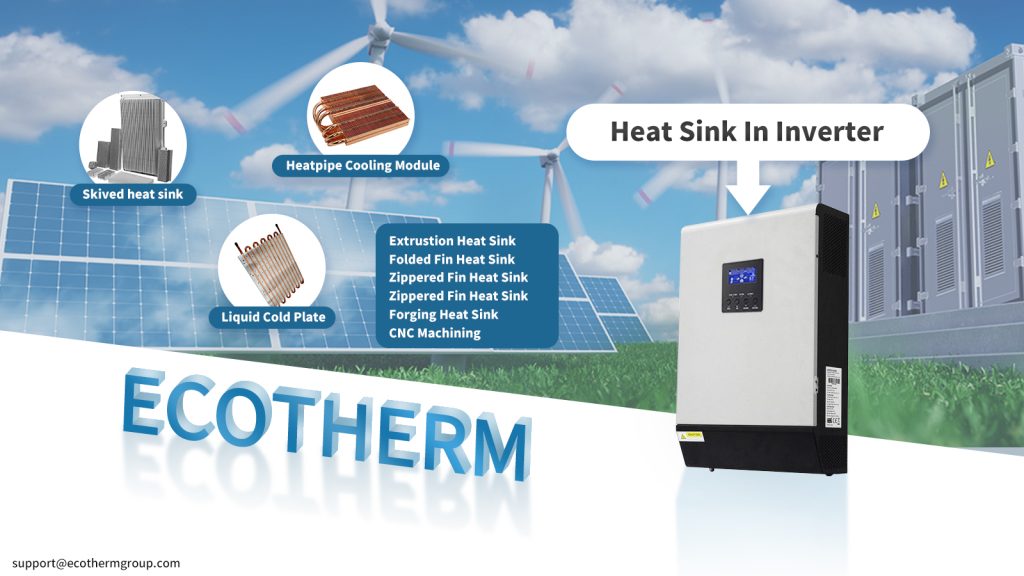
A Crucial Component
A heat sink is an essential component in many electronic devices, including inverters, and its primary purpose is to dissipate heat generated during the operation of electronic components, such as transistors and integrated circuits.
Heat Dissipation
Inverters house power semiconductors, like transistors or insulated gate bipolar transistors (IGBTs), which switch rapidly to convert DC to AC power. This switching process generates a significant amount of heat. The heat sink’s role is to provide a substantial surface area and thermal mass, efficiently absorbing and dissipating this heat. By doing so, it prevents the electronic components from overheating, ensuring their continued functionality.
Temperature Regulation
The maintenance of a stable operating temperature is critical for electronic components’ performance and longevity. Heat sinks excel in this regard by conducting heat away from the hot components and dispersing it into the surrounding air. This regulation guarantees that the inverter operates within a safe temperature range, reducing the risk of thermal stress and damage.
Preventing Thermal Damage
Excessive heat can wreak havoc on sensitive electronic components. Maintaining the operating temperature of electronic components within a safe range is crucial for their performance and longevity. Heat sinks help regulate the temperature by conducting heat away from the hot components and into the surrounding air.
Improved Efficiency
Electronic components, particularly power semiconductors, become less efficient as their temperature rises. Heat sinks come into play by dissipating heat effectively, thus maintaining the inverter’s efficiency. This ensures that the inverter performs at its rated levels, translating into energy savings and consistent power conversion.
Stability and Reliability
Heat sinks are integral to ensuring the stability and reliability of inverters. They act as a safety net, preventing temperature-induced failures or performance degradation. This is especially crucial in applications where uninterrupted power supply is non-negotiable. Customized Heat Sinks In some cases, standard heat sinks might not meet specific requirements. This is where customized heat sinks come into play. Tailored to your needs, these heat sinks consider factors like power output, size limitations, and operating conditions to optimize heat dissipation and overall inverter performance.
Customized Service
At Ecotherm, we specialize in designing and customizing various heat sink types, including skived heat sinks, liquid cold plates, heat pipe cooling modules, extrusion heat sinks, forging fin heat sinks, folded fin heat sinks, zippered fin heat sinks, vapor chamber heat sinks, as well as offering services like stamping parts and CNC machining. We use ANSYS finite element analysis software for thermal analysis to optimize inverter heat sink designs for efficient cooling. Located in Shenzhen, we also provide various surface treatments, including anodizing, sandblasting, drawing polishing, electroplating, and silkscreen printing. Your satisfaction is our priority, so feel free to reach out to us to discuss your specific heat sink needs.

